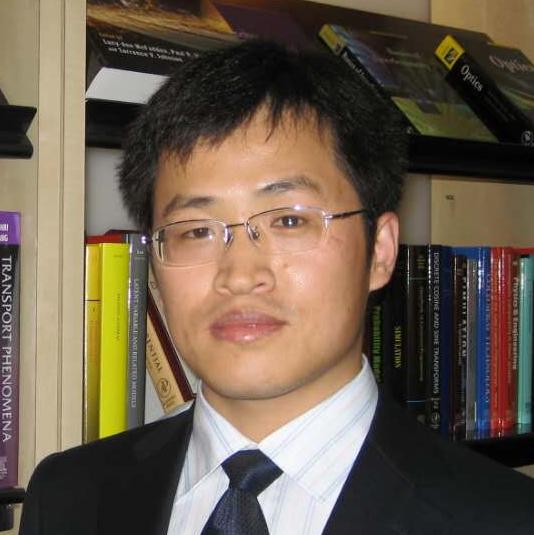President Barack Obama’s August 2014 charge that China is a free-rider in the Middle East is still providing momentum for American academia and media to question China’s role in the region. It is certainly true that China should play a bigger role and contribute more to regional peace and stability as a major external power. But the reproach of the US is not only illegitimate but also hypocritical.
Despite being a market player, the argument of China’s role as a free-rider or irresponsible player in the Middle East is based on several wrong pre-assumptions. The US has not always been a provider of public security goods in the region, and China has not been a beneficiary but a victim of US policy in the region as the author argued in previous articles.
And the accusation that China had not made contributions to the region is fabrication rather than truth. China actually has been a large but low-profile contributor for a long time. China is an economic power, and has contributed to the Middle East economy with its economic development. Without China’s role, the economic, social and security situation in the region could have been worse in the last decade.
China’s stable demand for oil has been a critical factor for Middle East oil producers’ ability to maintain economic and social stability, particularly during the 2008 financial crisis, when Western markets slackened. China’s investments in oil and other sectors, for instance, in Sudan, contributed a great deal to the betterment of lives in the country.
In other areas, China’s contribution is also obvious, especially in poverty-stricken and insecure regions. A power plant built by Shanghai Electrics in Iraq in 2013, for instance, had been supplying approximately 70 percent of the electricity of Baghdad. They didn’t retreat even when ISIS was threatening the security of Baghdad in mid-2014. Chinese Huawei also stayed even when all other companies evacuated from Libya in 2011.
China also contributed peace-keeping forces to UN mission in the region, contributed battleships patrolling the seas, and contributed battleships escorting Syrian chemical weapons to be destroyed in the Mediterranean.
China is also a major donor of humanitarian aid in the region. The latest such donation was in December 2014. China donated US $10 million for relieving Iraqi humanitarian crisis. Half of it went to the Kurdish area, which is most affected by ISIS expansion.
Despite all these contributions, China had not been proportionately recognized as a responsible actor. The reasons are numerous. Unlike the US or other actors, China would always like to keep a low profile. China favors a low-profile culture. It is believed that actions speak louder than words, though it is not necessarily the case in today’s international politics.
Additionally, China’s role has been intentionally defamed by Western media. Any reasonable person can understand that China’s investment in international oil and other sectors should benefit oil markets and local economies, but unfortunately China’s investment had been widely reported in Western media as aggressive business expansion.
While the allegation is not legitimate, US expectations for China to play a bigger role is even more hypocritical. By claiming that China is a free-rider, the US actually means that China over-consumed the public-security goods provided by the US — although as mentioned, scholars from non-Western world do not see the US as a provider of public-security goods in the region.
When asked specifically how China should play a bigger role in the Middle East, American interlocutors can actually list very few besides expecting China to vote with the US in UN Security Council resolution. In other areas, as discussed, like economic investment and aid, China has actually been doing quite a lot.
Do they mean that China should send troops to replace US forces in the Middle East? The answer is definitely no, as American scholars would always say. It is certainly naïve to expect that the US will give up its military presence and advantage in the region. Barack Obama’s withdrawal from Afghanistan and Iraq by no way means abandonment of America’s dominant position in the region.
Then do they mean that the Chinese army should fight with US forces in the Middle East? Or does the US mean to include the PLA within the security framework of the region dominated by the US? It is true that China will not likely send troops to intervene into the regional and domestic affairs in the region since China resolutely abides by the principle of non-intervention. But do Americans seriously mean that they will have their army to fight side by side with PLA? It is doubtful, since it is something not politically right for American troops to work with PLA.
It is nothing but hypocrisy to ask China not to be a free-rider and to take much more responsibility. According to statistics, the US has approximately 50 thousand troops stationed respectively in six Gulf Arab countries, Turkey Djibouti and Afghanistan. Kuwait, where there are 14,000 US troops, instead of Afghanistan or Iraq, has the largest number of US military personnel. If not hypocrisy, what it is asking other countries to play a bigger role in maintaining security while itself having the largest military presence.
All in all, the allegation of China as free-rider is not based on the ground situation but an outcome of propaganda defaming China in the region. This charge implies that China should play a bigger role in security issues, but China’s contribution to the region is more than sufficient within the current global and regional context defined by US dominance. China together with international community certainly needs to work out more-inclusive mechanisms for better cooperation in security fields, but there is no basis for America’s diplomatic rhetoric about China’s current role in the Middle East.
Last but not least, the military role of external powers, especially those not within UN framework, is not necessarily welcomed by regional actors. And external powers, however strong they are, cannot necessarily solve the problems in the region.


